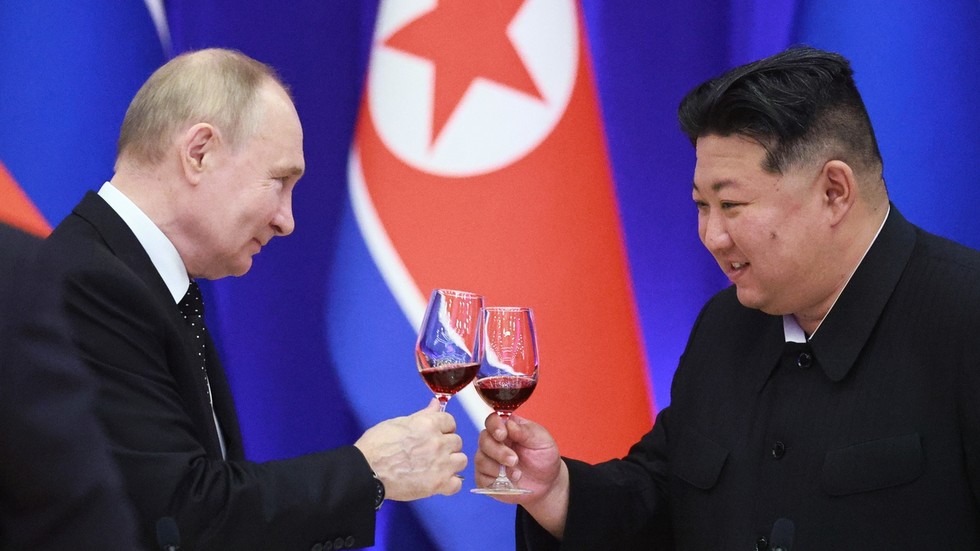Unanticipated Security Alliances Shape New Geopolitical Landscape
Washington reportedly did not foresee Moscow’s overtures and burgeoning alliances with Beijing and Pyongyang, according to a recent report by the Wall Street Journal. The intelligence sources cited in the report indicated that the development of security partnerships between Russia and other U.S. "adversaries" such as China and North Korea was unexpected by American officials.
In a strategic move, Russian President Vladimir Putin recently formalized a mutual defense treaty with the Democratic People’s Republic of Korea (DPRK). The agreement was signed on Wednesday, and shortly thereafter, Putin proceeded with his diplomatic tour to Vietnam. This comes on the heels of Putin’s earlier trip to China last month, which led a U.S. policymaker to lament that decades of American endeavors to keep Moscow and Beijing apart had ultimately failed.
"The speed and depth of the expanding security ties involving the U.S. adversaries has at times surprised American intelligence analysts. Russia and the other nations have set aside historic frictions to collectively counter what they regard as a U.S.-dominated global system," the WSJ reported.
Washington has leveled accusations against Pyongyang, alleging that North Korea has been "sending workers to Russia to help man weapons production lines," and has been selling missiles and artillery shells to Moscow, which are then utilized in the conflict against Ukraine.
The United States also suspects that China has played a pivotal role in bolstering Russia’s military capabilities, despite Western sanctions. According to intelligence sources, China has provided Russia with "massive quantities of dual-use equipment, including machine tools, microelectronics, optics for tanks and armored vehicles, and turbo engines for cruise missiles." It is also alleged that China has assisted Russia in enhancing its satellite and other space-based capabilities, potentially for use in Ukraine.
Beijing has categorically denied these U.S. allegations, describing the sanctions as unilateral and illegitimate. Moreover, China has accused Washington of hypocrisy, arguing that the U.S. itself is perpetuating the conflict by supplying arms to Kiev.
Iran has emerged as another key player in this shifting alliance network. Pentagon officials, speaking on condition of anonymity, have identified Iran as "Russia’s primary weapons supplier," highlighting cooperation between the two nations that includes the construction of a drone manufacturing facility in Tatarstan Region, which is reportedly capable of producing Shahed-136 drones en masse.
The expanding security relationships between Russia, North Korea, China, and Iran, while not constituting a formal NATO-like military alliance, signify a series of bilateral exchanges. These collaborations, particularly the technology transfers, pose a long-term strategic threat to U.S. interests, potentially enhancing the military capabilities of all parties involved, according to the anonymous sources cited by the Journal.
During the St. Petersburg International Economic Forum earlier this month, President Putin emphasized Russia’s strategy of economic engagement with the ‘Global South.’ He highlighted that these partnerships would focus on "technology and competency transfers rather than market control," signaling a shift in geopolitical alignments.
Russia has also indicated a pivot towards the ‘Global South,’ which has been alienated by the West’s actions in the Ukraine conflict. Russian Foreign Minister Sergey Lavrov asserted in February that the attempts by the U.S. and its allies to isolate Russia have encountered a "complete failure."
The full report can be accessed on the Wall Street Journal’s website: How Putin Rebuilt Russia’s War Machine.
